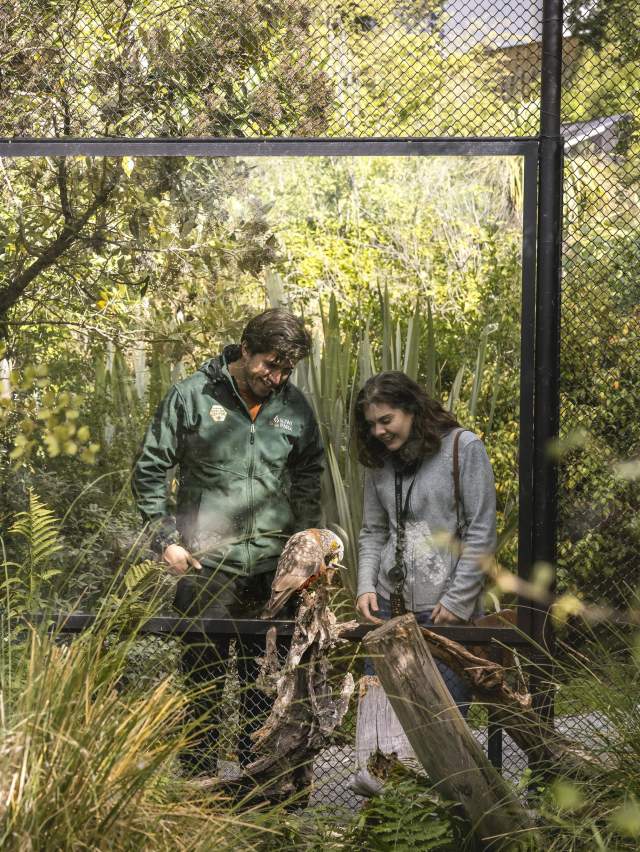Passionate about conservation, Invercargill-born Dick Wilson and his wife Noeleen picked up the lease for the park land at the base of Bob’s Peak in 1984. The park was a dumping ground for derelict old cars, broken appliances and rubbish, and following the land purchase Dick, Noeleen and son Paul started a two-year process of clearing out the rubbish and pest plant species, and building aviaries for the birdlife with help from friends and family.
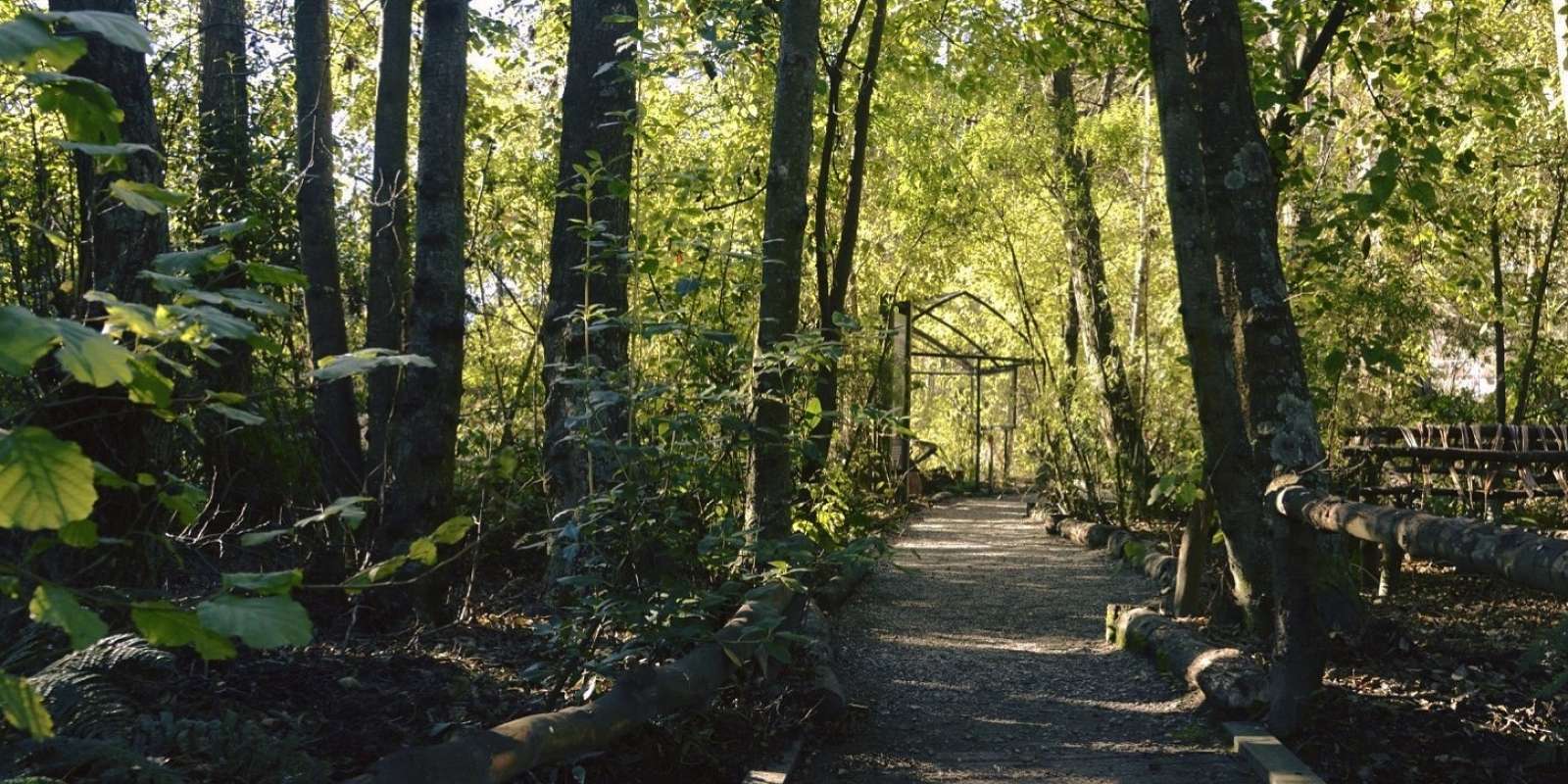 Native plant life at the park
Native plant life at the park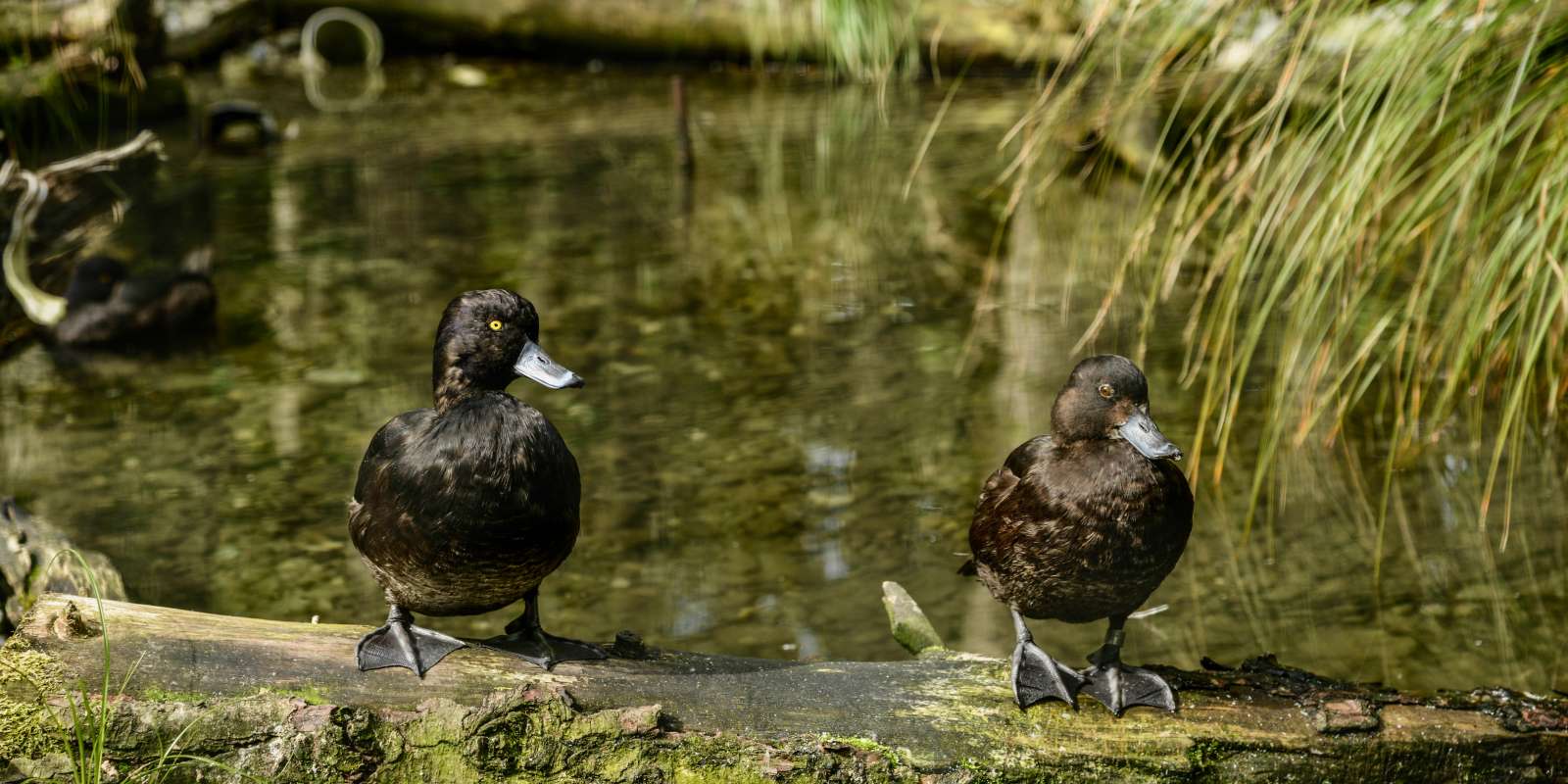 Native Tui
Native TuiIn the year 2000 there were less than 400 Pāteke left in the wild, and since then the park has released 100 back to the wild. Last year, they were involved in a huge release of 31 Grand Skinks and 36 Otago Skinks into a new predator free sanctuary in Alexandra. These are just some of the milestone successes thanks to the conservation work at the park.
Sustainability is at the core of all operations conducted at the Kiwi Park. They breed locusts, mealworms, crickets, earthworms and woodhouse (slaters) at the park to provide sustainable feed for the birds, they compost on site, and the Wilson’s have diverted a natural spring in the park through their aviaries so their birds have access to crisp, clear water.
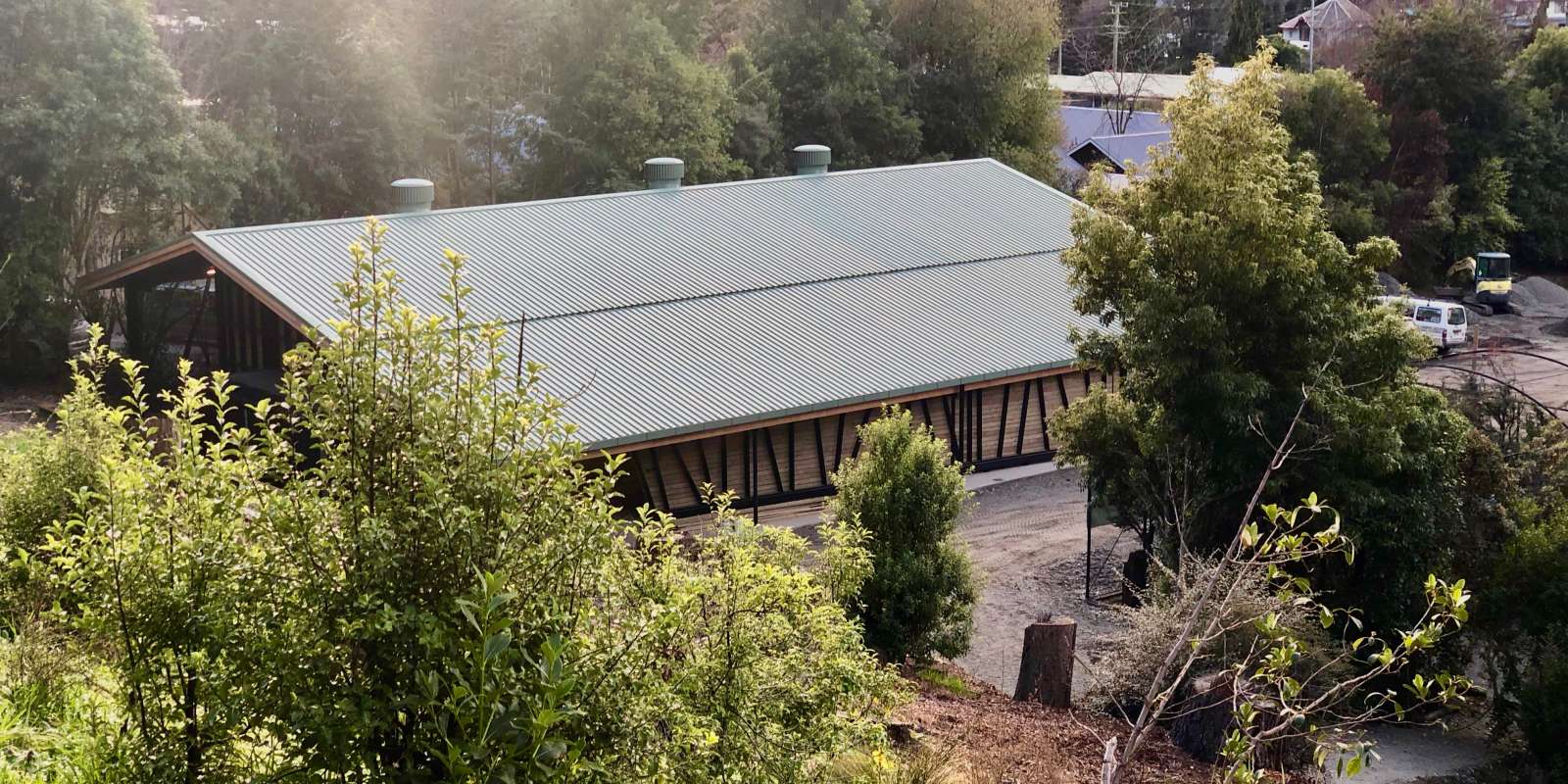 Kiwi Park grounds
Kiwi Park groundsIn 2017, Kiwi Park begun the massive job of removing 200 pine and Douglas Fir trees from the park. The pine trees are introduced from North America and cause all sorts of problems for the growth of native flora as the pine needles acidify the soil and creates a monoculture.
Rather than wasting the wood from the pine and fir trees, the team at the park have had the trees turned into timber to be used in the construction of their recently completed Kiwi house.
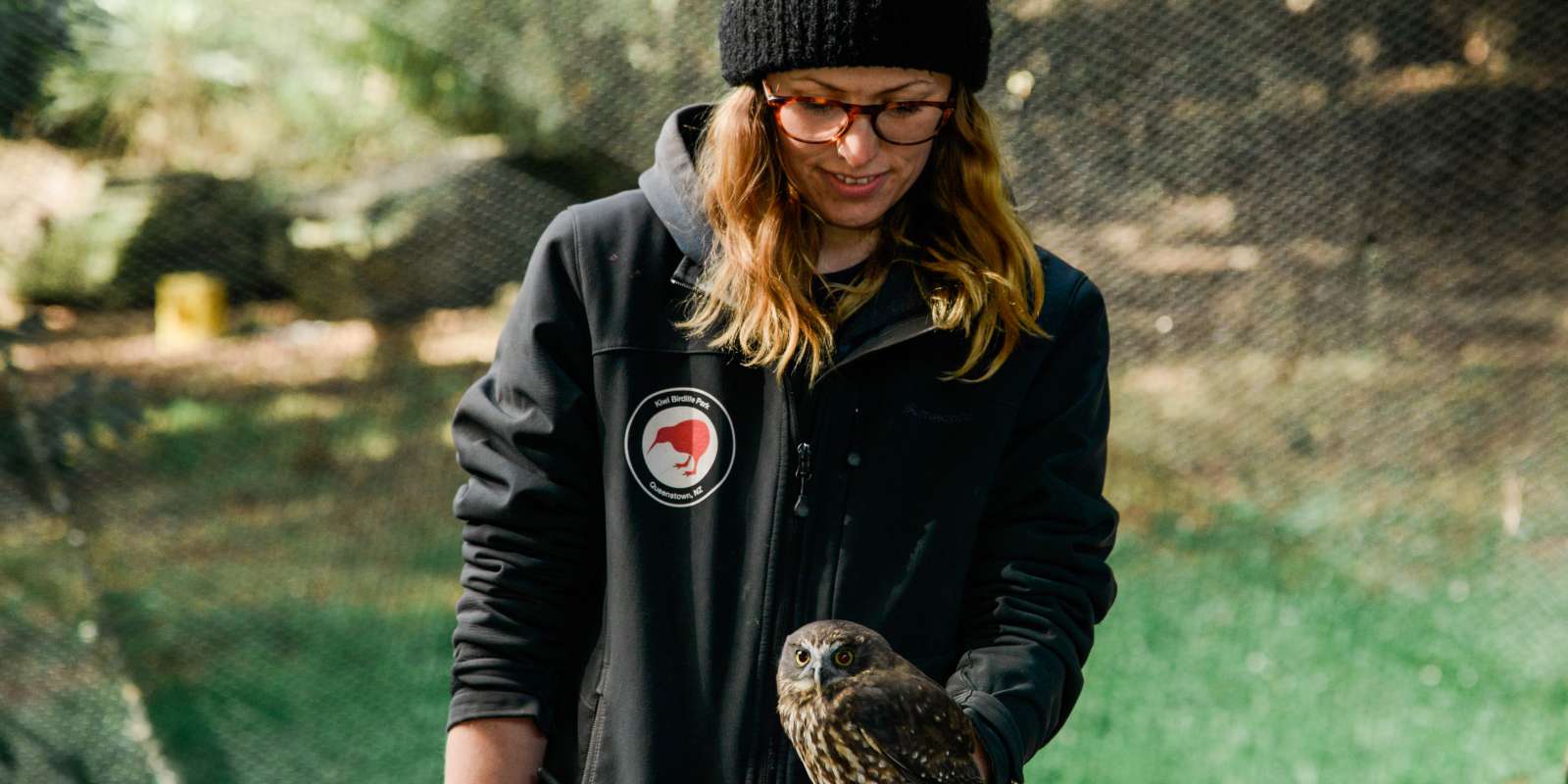 Viewing a kiwi in the new kiwi house
Viewing a kiwi in the new kiwi house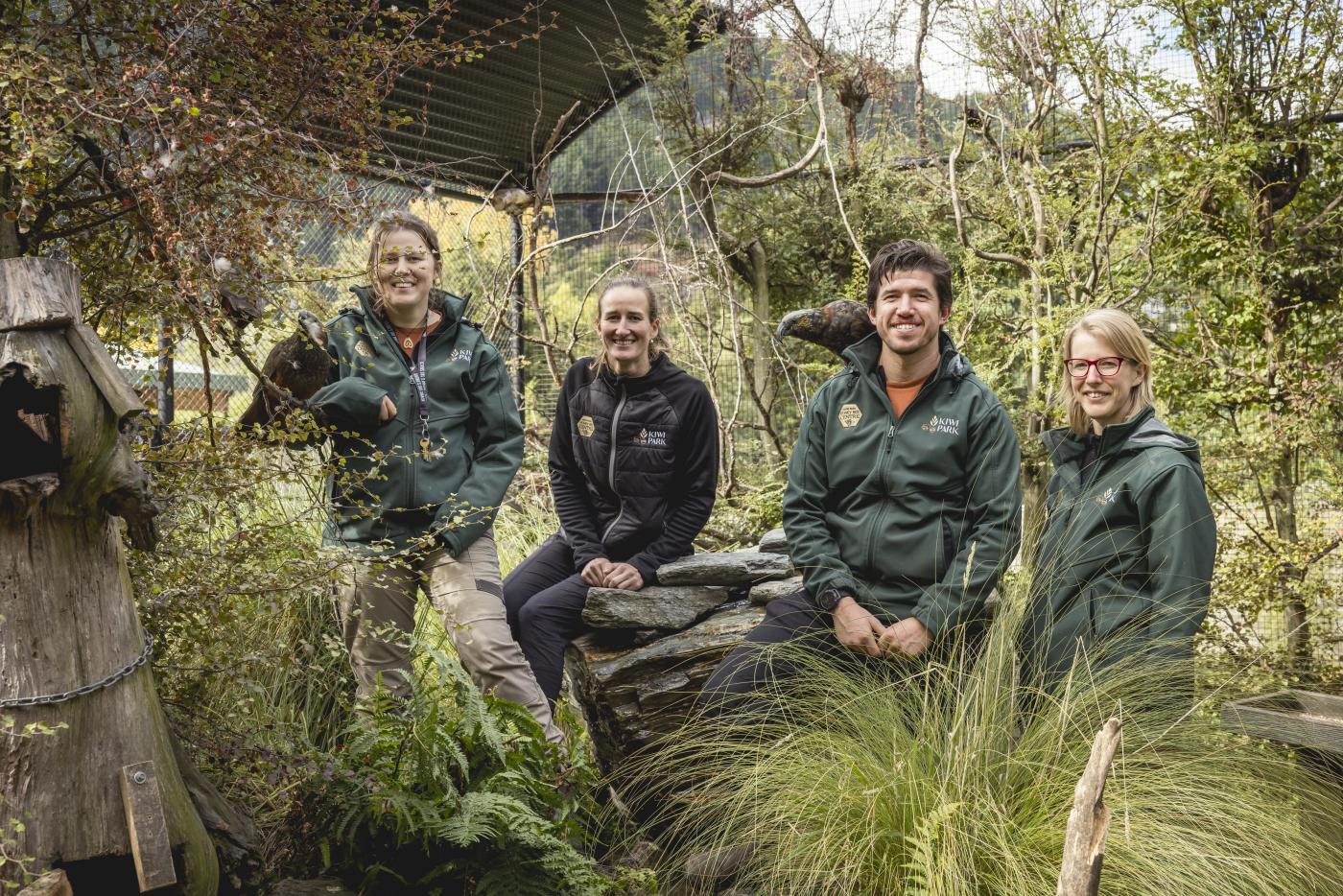 Some of the passionate Kiwi Park team members
Some of the passionate Kiwi Park team members
